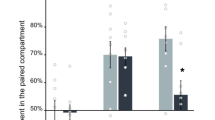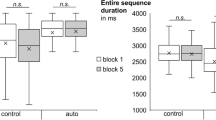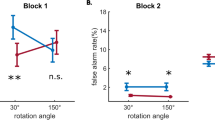Abstract
The impairing effects on memory functioning after acute alcohol intoxication in healthy volunteers and after chronic use in alcoholics are well established. However, research determining the next-morning effects of a single episode of binge drinking on memory functioning is scarce. A total of 48 healthy volunteers participated in a single-blind study comprising an evening (baseline) session, followed by a treatment administration (ethanol 1.4 g/kg or placebo), and a morning session. Memory was tested with a word-learning test (including immediate and delayed recall, and recognition). Further, a 45-min Mackworth clock test for measuring vigilance was included (parameters: number of hits and false alarms) and subjective alertness was assessed, to infer whether word-learning test findings reflect sedation or specific memory impairments. Delayed recall in the morning session was significantly worse in the alcohol group when compared to the placebo group (F1,42=6.0, p<0.02). In contrast, immediate recall and recognition were unimpaired in the alcohol group. In the morning session, relative to the placebo group, subjective alertness was significantly reduced in the alcohol group before and after the tests (F1,44=8.7, p<0.005; F1,44=13.3, p<0.001, respectively). However, in the Mackworth clock test, the alcohol group and placebo group did not differ significantly in the morning session. The specific findings of impaired delayed recall show that memory retrieval processes are significantly impaired during alcohol hangover. Vigilance performance was not significantly affected, indicating that this memory impairment does not reflect sedation.
Similar content being viewed by others
Log in or create a free account to read this content
Gain free access to this article, as well as selected content from this journal and more on nature.com
or
References
Ames GM, Grobe JN, Moore RS (1997). The relationship of drinking and hangovers to workplace problems: an empirical study. J Stud Alcohol 58: 37–47.
Anderson S, Dawson J (1999). Neuropsychological correlates of alcohol hangover. S Afr J Sci 95: 145–147.
Bonte W, Volck J (1978). Untersuchungen zum Problem der Alkoholnachwirkungen. Blutalkohol 15: 35–46.
Carroll JR, Ashe WF, Roberts BE (1964). Influence of the aftereffects of alcohol combined with hypoxia on psychomotor performance. Aerosp Med 35: 990–993.
Chait LD, Perry JL (1994). Acute and residual effects of alcohol and marijuana, alone and in combination, on mood and performance. Psychopharmacology 115: 340–349.
Collins WE (1980). Performance effects of alcohol intoxication and hangover at ground level and simulated altitude. Aviat Space Environ Med 51: 327–335.
Collins WE, Chiles WD (1980). Laboratory performance during acute alcohol intoxication and hangover. Hum Factors 22: 445–462.
Dowd PJ, Wolfe JW, Cramer RL (1973). Aftereffects of alcohol on the perception and control of pitch attitude during centripetal acceleration. Aerosp Med 44: 928–930.
DSM IV (1994). Diagnostic and Statistical Manual of Mental Disorders, 4th edn. American Psychiatric Association: Washington, DC.
Ferrara SD, Zancaner S, Giorgetti R (1994). Low blood alcohol concentrations and driving impairment. Int J Legal Med 106: 169–177.
Finnigan F, Hammersley R, Cooper T (1998). An examination of next-day hangover effects after a 100 mg/100 ml dose of alcohol in heavy social drinkers. Addiction 93: 1829–1838.
Gabrieli JDE (1998). Cognitive neuroscience of human memory. Annu Rev Psychol 49: 87–115.
Holloway FA (1995). Low-dose alcohol effects on human behavior and performance. Alcohol, Drugs Driving 11: 39–56.
Ideström CM, Cadenius B (1968). Time relations of the effects of alcohol compared to placebo. Psychopharmacologia 13: 189–200.
Johnson MP, Duffy JF, Dijk DJ, Ronda JM, Dyal CM, Czeisler CA (1992). Short-term memory, alertness and performance: a reappraisal of their relationship to body temperature. J Sleep Res 1: 24–29.
Karvinen E, Miettinen M, Ahlman K (1962). Physical performance during hangover. Q J Stud Alcohol 23: 208–215.
Kelly M, Myrsten A, Neri A, Rydberg U (1970). Effects and after-effects of alcohol on physiological and psychological functions in man—a controlled study. Blutalkohol 7: 422–436.
Koelega HS (1995). Alcohol and vigilance performance: a review. Psychopharmacology 118: 233–249.
Krüger HP (1992). Effects of low alcohol dosages. A review of the literature. Alcohol, Drugs Traffic Safety, Proceedings of the 1992 Meeting, Band 2. pp 763–778.
Laurell H, Törnros J (1983). Investigation of alcoholic hangover effects on driving performance. Blutalkohol 20: 489–499.
Lemon J, Chesher G, Fox A, Greeley J, Nabke C (1993). Investigation of the ‘hangover’ effects of an acute dose of alcohol on psychomotor performance. Alcohol Clin Exp Res 17: 665–668.
Loon-Vervoorn WA van (1985). Voorstelbaarheidswaarden van Nederlandse woorden: 4600 substantieven, 1000 verba en 500 adjectieven. Swets & Zeitlinger, ISBN 90-265-0658-9.
Mackworth NH (1948). The breakdown of vigilance during prolonged visual search. Q J Exp Psychol 1: 6–21.
Mishra L, Sharma S, Potter JJ, Mezey E (1989). More rapid elimination of alcohol in women as compared to their male siblings. Alcohol Clin Exp Res 13: 752–754.
Monk TH, Moline ML, Fookson JE, Peetz SM (1989). Circadian determinants of subjective alertness. J Biol Rhythms 4: 393–404.
Morrow D, Leirer V, Yesavage J (1990). The influence of alcohol and aging on radio communication during flight. Aviat Space Environ Med 61: 12–20.
Moskowitz H, Fiorentino D (2000). A review of the scientific literature regarding the effects of alcohol on driving-related behavior at blood alcohol concentrations of 80 mg/dl and lower (Report HS-809-028). US Department of Transportation, National Highway Traffic Safety Administration: Washington, DC.
Mulder-Hajonides van der Meulen WREH (1981). Measurement of subjective sleep quality. Proceedings of the International European Sleep Conference. Amsterdam: Netherlands.
Mumenthaler MS, Taylor JL, O'Hara R, Yesavage JA (1999). Gender differences in moderate drinking effects. Alcohol Res Health 23: 55–64.
Myrsten AL, Rydberg U, Ideström CM, Lamble R (1980). Alcohol intoxication and hangover: modification of hangover by chlormethiazole. Psychopharmacology 69: 117–125.
Obernier JA, White AM, Swartzwelder HS, Crews FT (2002). Cognitive deficits and CNS damage after a 4-day binge ethanol exposure in rats. Pharmacol Biochem Behav 72: 1–12.
O'Brien CP, Lyons F (2000). Alcohol and the athlete. Sports Med 29: 295–300.
Pawan GL (1973). Alcoholic drinks and hangover effects. Proc Nutr Soc 32: 15A.
Roehrs T, Yoon J, Roth T (1991). Nocturnal and next-day effects of ethanol and basal level of sleepiness. Hum Psychopharmacol 6: 307–311.
Seppälä T, Leino T, Linnoila M, Huttunen M, Ylikahri R (1976). Effects of hangover on psychomotor skills related to driving: modification by fructose and glucose. Acta Pharmacol Toxicol 38: 209–218.
Stockwell T (1998). Towards guidelines for low-risk drinking: quantifying the short- and long-term costs of hazardous alcohol consumption. Alcohol Clin Exp Res 22(Suppl 2): 63S–69S.
Streufert S, Pogash R, Braig D, Gingrich D, Kantner A, Landis R et al (1995). Alcohol hangover and managerial effectiveness. Alcohol Clin Exp Res 19: 1141–1146.
Sutker PB, Tabakoff B, Goist KC, Randall CL (1983). Acute alcohol intoxication, mood states and alcohol metabolism in women and men. Pharmacol Biochem Behav 18(Suppl 1): 349–354.
Swift R, Davidson D (1998). Alcohol hangover. Mechanisms and mediators. Alcohol Health Res World 22: 54–60.
Takala M (1958). Intellectual functions and dexterity during hangover. Q J Stud Alcohol 19: 1–29.
Tapert SF, Brown GG, Cheung EH, Frank LR, Brown SA (2001). fMRI measurement of brain dysfunction in alcohol-dependent young women. Alcohol Clin Exp Res 25: 236–245.
Taylor JL, Dolhert N, Friedman L, Mumenthaler M, Yesavage JA (1996). Alcohol elimination and simulator performance of male and female aviators: a preliminary report. Aviat Space Environ Med 67: 407–413.
Törnros J, Laurell H (1991). Acute and hang-over effects of alcohol on simulated driving performance. Blutalkohol 28: 24–30.
Wechsler H, Dowdall GW, Maenner G, Gledhill-Hoyt J, Lee H (1998). Changes in binge drinking and related problems among American college students between 1993 and 1997. J Am Coll Health 9: 57–68.
Wechsler H, Lee JE, Kuo M, Lee H (2000). College binge drinking in the 1990s: a continuing problem. J Am Coll Health 48: 199–210.
Wiese JG, Shlipak MG, Browner WS (2000). The alcohol hangover. Ann Intern Med 132: 897–902.
Yesavage JA, Dolhert N, Taylor JL (1994). Flight simulator performance of younger and older aircraft pilots: effects of age and alcohol. J Am Geriatr Soc 42: 577–582.
Yesavage JA, Von Leirer O (1986). Hangover effects of aircraft pilots 14 h after alcohol ingestion: a preliminary report. Am J Psychiatry 143: 1546–1550.
Acknowledgements
This research was supported by internal funds only.
Author information
Authors and Affiliations
Corresponding author
Rights and permissions
About this article
Cite this article
Verster, J., van Duin, D., Volkerts, E. et al. Alcohol Hangover Effects on Memory Functioning and Vigilance Performance after an Evening of Binge Drinking. Neuropsychopharmacol 28, 740–746 (2003). https://doi.org/10.1038/sj.npp.1300090
Received:
Revised:
Accepted:
Published:
Issue date:
DOI: https://doi.org/10.1038/sj.npp.1300090
Keywords
This article is cited by
-
A comprehensive review of attention tests: can we assess what we exactly do not understand?
The Egyptian Journal of Neurology, Psychiatry and Neurosurgery (2023)
-
Effects of alcohol hangover on attentional resources during a verbal memory/psychomotor tracking dual attention task
Psychopharmacology (2022)
-
Alcohol intoxication, but not hangover, differentially impairs learning and automatization of complex motor response sequences
Scientific Reports (2021)
-
Behavioral and Biochemical Effects of N-Acetylcysteine in Zebrafish Acutely Exposed to Ethanol
Neurochemical Research (2018)
-
A critical analysis of alcohol hangover research methodology for surveys or studies of effects on cognition
Psychopharmacology (2014)



